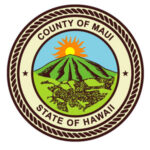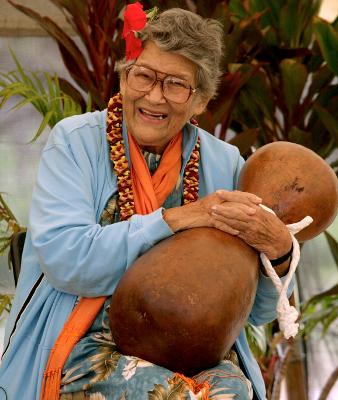
Aug 19, 2020 | Community, Sustainability
 On Thursday August 27 at 9:00 pm, PBS Hawai’i will present the world premiere of Hawaiiana, a new documentary about the late Winona Kapuailohiamanonokalani Desha Beamer, or Aunty Nona as she was fondly called. Credited with coining the term Hawaiiana as early as 1949, Aunty Nona used it to describe the absolute best of all things Hawaiian: the people, their knowledge, culture, wisdom, and aloha. Keola Beamer, Aunty Nona’s oldest son, assisted by his wife Moanalani and veteran Maui-based filmmaker Tom Vendetti, made the documentary about the well-known and much loved Hawaiian heroine who is renowned for her integrity, scholarship, and love.
On Thursday August 27 at 9:00 pm, PBS Hawai’i will present the world premiere of Hawaiiana, a new documentary about the late Winona Kapuailohiamanonokalani Desha Beamer, or Aunty Nona as she was fondly called. Credited with coining the term Hawaiiana as early as 1949, Aunty Nona used it to describe the absolute best of all things Hawaiian: the people, their knowledge, culture, wisdom, and aloha. Keola Beamer, Aunty Nona’s oldest son, assisted by his wife Moanalani and veteran Maui-based filmmaker Tom Vendetti, made the documentary about the well-known and much loved Hawaiian heroine who is renowned for her integrity, scholarship, and love.
“My mother is a lifelong teacher of helping to nurture the love of hula and mele in Hawai’i, and her legendary wisdom continues to spread much needed aloha around the world,” said Keola, a Hawaiian slack-key guitarist and Grammy Award nominee. “She was a revered Hawaiian cultural treasure and is warmly remembered by thousands of her students. When Moanalani and I think of her many contributions, we are filled with gratitude. Her existence on this earth was a blessing to all.”
Vendetti said Beamer, his dear friend, asked him to do the project. “Even though there have been other films made about her, with basically people talking about her, this film is focused on Aunty Nona telling her own story, along with family members,” Vendetti explained. “After hearing Aunty Nona’s definition of Hawaiiana, I thought it would make a wonderful title for the film, as she explores, in her own words, the journey of her life and her fight toward preserving, perpetuating and creating awareness of Hawaiian culture. I was truly touched and honored to take on the project, which will also be distributed this Fall around the nation and beyond by American Public Television.”
Vendetti reflected, “Aunty Nona is still well-known as a pioneer, ali’i, musician and a humanitarian. Her wisdom of spreading aloha around the world is something that everyone should hear. Considering the current cultural issues that we are confronting, I think her message will resonate and offer hope for the world. She was truly a Lady of Aloha.”
Aunty Nona was the granddaughter of Helen Desha Beamer and cousin to Hawaiian Music Hall of Fame inductee Mahi Beamer.
Tom Vendetti, Maui-based Filmmaker
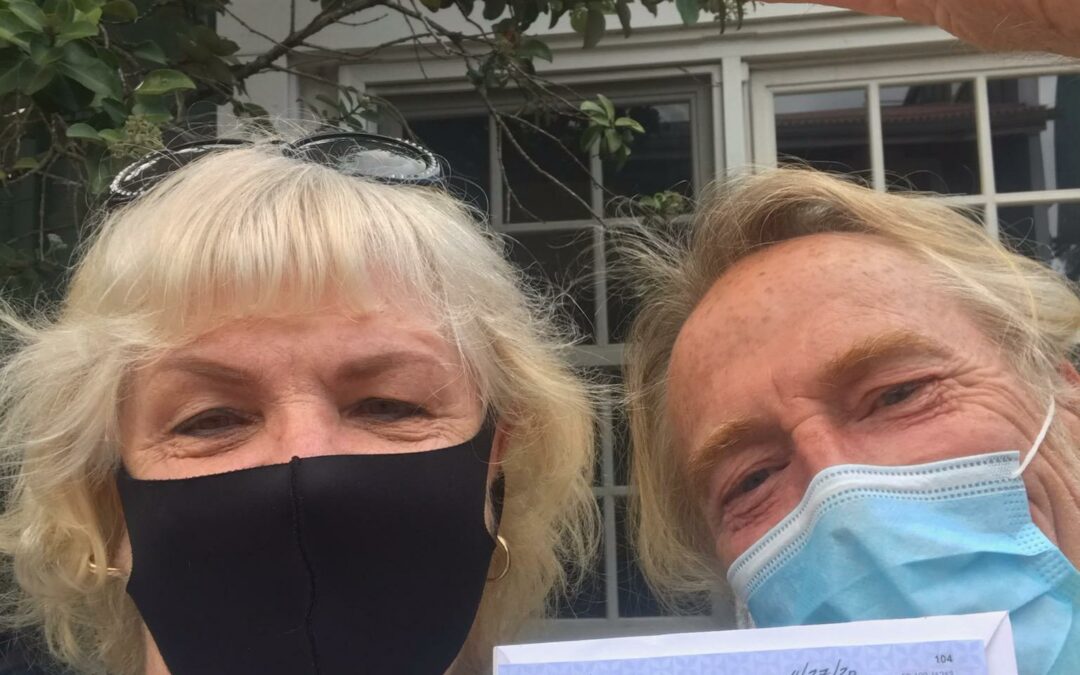
Jul 15, 2020 | Sustainability
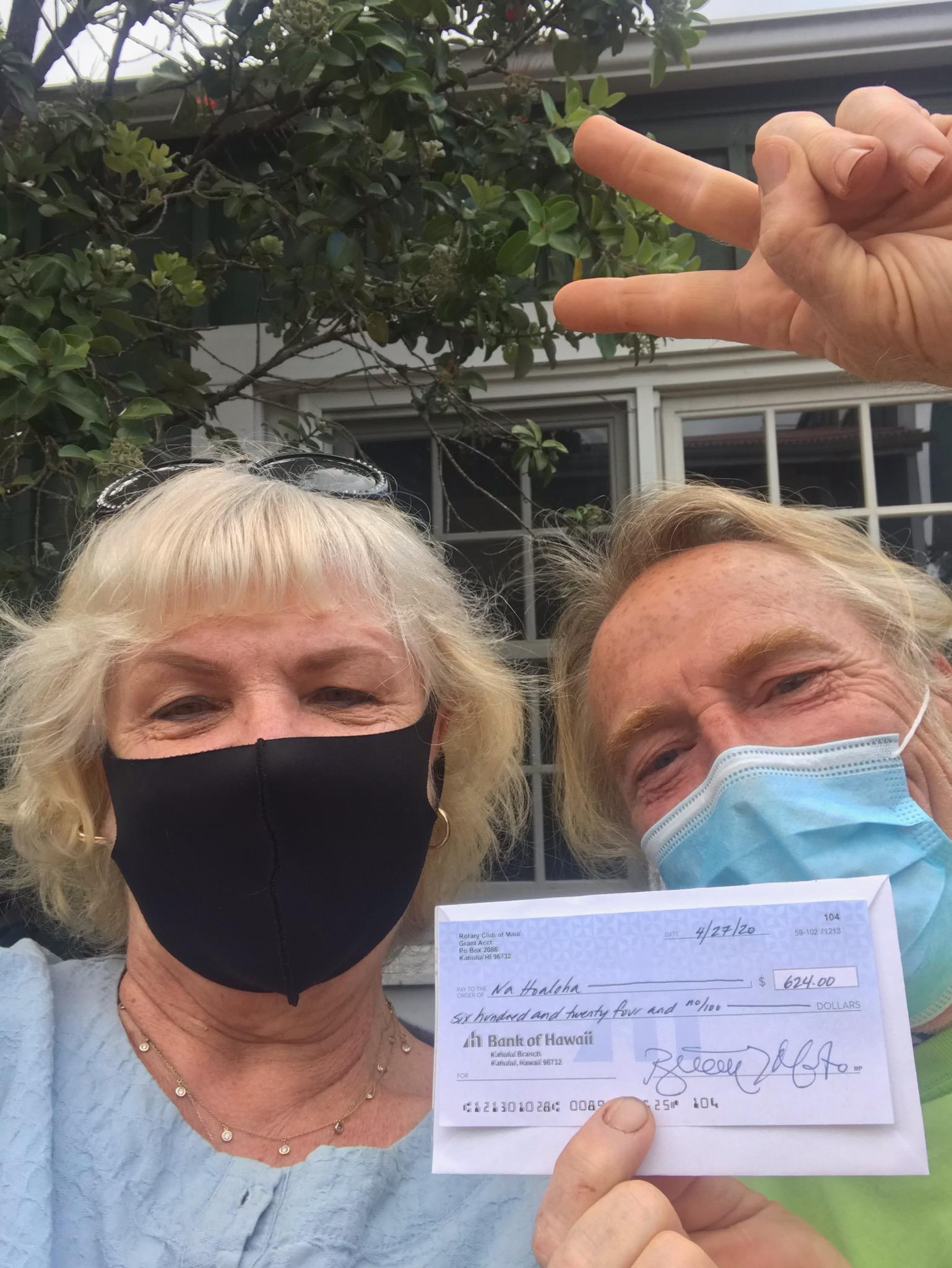 Rotary International District 5000 announced the award of $31,000 in grants to Hawaii Rotary clubs to support COVID-19 relief projects. The Hawaii District 5000 funds come from dues and donations from club members across the islands. Funds that were budgeted this year for conferences, training and travel have been re-allocated to these COVID-19 grants. The clubs are using these grants to work with Hawaii nonprofit community partners to provide COVID-19 relief.
Rotary International District 5000 announced the award of $31,000 in grants to Hawaii Rotary clubs to support COVID-19 relief projects. The Hawaii District 5000 funds come from dues and donations from club members across the islands. Funds that were budgeted this year for conferences, training and travel have been re-allocated to these COVID-19 grants. The clubs are using these grants to work with Hawaii nonprofit community partners to provide COVID-19 relief.
“Rotary is about helping people in our local communities,” said Eric Kaler, District Governor of Rotary in Hawaii. “We are mobilizing and re-deploying funds to enable our Hawaii clubs to do even more to provide relief for people impacted by the COVID-19 pandemic.”
In addition to the grant, the clubs collectively contributed a supplemental $3,600 for projects. The Rotary Club of Lahaina Sunrise procured and assembled masks and other personal protective equipment for medical workers on Maui. The masks were sourced from Min Plastics, a Honolulu company with more than 70 years of fabrication experience, who began producing face shields in response to the COVID-19 pandemic.
Dr. Bridget Bongaard, Rotary Club of Maui President, said, “Our club has successfully transitioned from being a traditional club that meets at a local restaurant each week, to one that is able to meet and plan using Zoom conferencing. We choose a different community project each month that we all support and serve. Recently, we delivered a grant check to Na Hoaloha, a nonprofit that provides essential services to the elderly in our community, such as transportation, and currently a virtual volunteer program as well. Na Hoaloha used the funds to provide nutritious hot meals for their kupuna. Rotary supports numerous organizations like this in the community.”
Rotary clubs across the islands are staying actively connected during the pandemic using online meetings, social media, and email. Club members are volunteering to sew face masks, shop for supplies for kupuna, deliver food, provide financial information, and support food banks and programs in their local communities. Bongaard concluded, “It is so important to have the support of community organizations like Rotary in the face of this pandemic.”
Rotary members have created Facebook groups for “Care-mongering” on their islands. These groups are open to the public and serve to connect people and resources for COVID-19 pandemic assistance.
Bridget Bongaard, President, Rotary Club of Maui
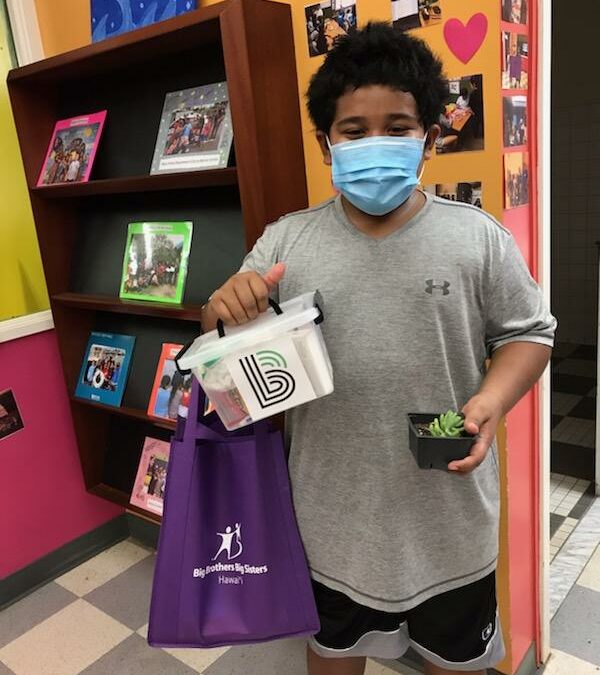
Jun 10, 2020 | Sustainability
Big Brothers Big Sisters (BBBS), the program that makes a big difference by matching children facing adversity with older role models in one-to-one relationships, is adapting to the COVID-19 pandemic. While bringing people together in person to go out and share activities is their main goal, they cannot do that at this time. BBBS wants everyone to be safe, and to their surprise, their families of matches have embraced the moment and are having lots of fun connecting virtually.
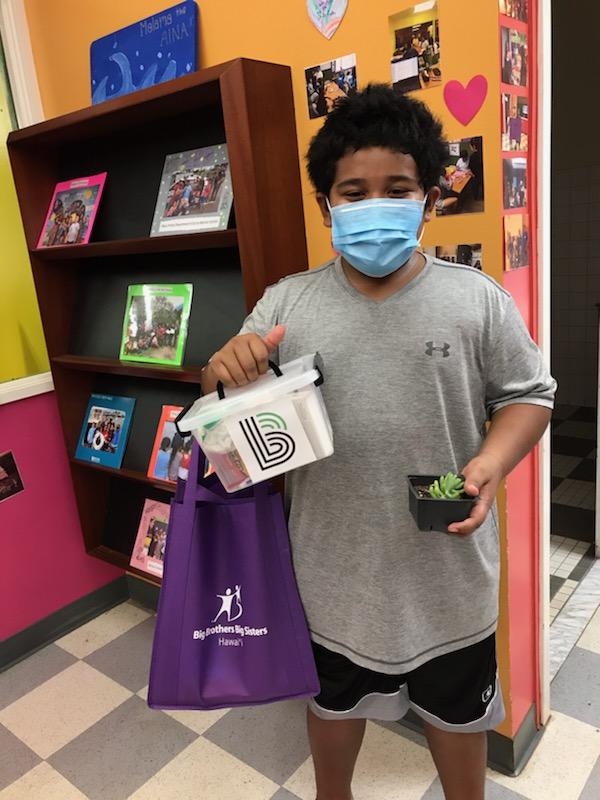
“During this very challenging and uncertain time, our mission remains to build and support one-to-one relationships, and to ignite the biggest possible future for our youth,” said Courtney Ikawa, Maui BBBS Regional Director. “These are really scary times for all of us, but especially for the children. Since the stay-at-home orders were enacted on Maui, the youth have lost access to school meals as well as resources that connected them to the outside world. Our Maui staff, working from home, have innovated our service delivery to ensure the children stay virtually in touch with their BBBS mentors.”
BBBS is serving as a hub for families by directing them to community resources and by providing virtual workshops for both the parents and volunteers. Their one-to-one matches have been meeting through phone calls, video chats, texts, and email. In fact, they have become highly creative, and went on their first virtual matches tour to visit the USS Missouri, the historic battleship anchored at Pearl Harbor.”
“We are still enrolling children and volunteers, and we are continuing to support virtual relationships during this time of social distancing,” Ikawa said. “Our program is an essential service that we must continue to provide because the young people that we serve through this pandemic are likely to bear the heaviest burdens of trauma and economic fallout. Each child and mentor is connected with one of our staff who provides ongoing coaching for the youth, training for the volunteer, and resources for the family. We continually need investment in our mission to ensure our agency remains open, which community members can do in numerous ways.”
BBBS’s youth-centered program helps children to create goals that mentors can help them achieve. For more information visit www.bbbshawaii.org
Courtney Ikawa, Maui BBBS Regional Director
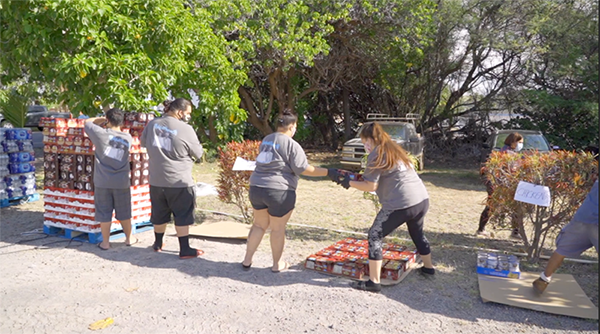
Jun 3, 2020 | Community, Small Business, Sustainability
More than 33,000 pounds of food are being distributed by the Maui Food Bank to Moloka‘i residents in need through a $20,000 contribution from the Hawaiian Electric Industries Charitable Foundation (HEICF). HEI is the parent company of Hawaiian Electric, which supplies power to Maui, Moloka‘i, Lāna‘i, O‘ahu and Hawai‘i Island. In March, the HEICF contributed $50,000 to the Hawai‘i Food Bank and pledged another $75,000 to United Way agencies in support of their efforts to assist families in need across the state during the COVID-19 pandemic. The current donation provides additional shipments to supplement Maui Food Bank’s regular monthly delivery of food to Moloka‘i. Once delivered, 19 partner agencies across the island distribute nutritious fresh food to individuals, families, children, and seniors on fixed incomes, those without shelter—anyone who is at risk of going hungry.

“During this coronavirus pandemic with many more in our communities facing hardships, the Maui Food Bank is experiencing a significant increase in requests for food assistance,” said Richard Yust, Executive Director of the Maui Food Bank. “This generous contribution from Hawaiian Electric enables much needed additional pallets of food to be shipped to Moloka‘i where food distributions are being depleted.”
Sharon Suzuki, President of Maui County and Hawai’i Island Utilities for Hawaiian Electric said, “We are grateful for organizations like the Maui Food Bank and the on-island partner agencies for maintaining this critical service throughout these uncertain times. We are all in this together and we want to help alleviate this escalating need for basic necessities in one of the most remote communities we serve.”
“ʻAʻohe hana nui ke alu ʻia! No task is too large when we come together,” said Kilia Purdy-Avelino of Alu Like, Inc., a partner agency on Moloka‘i. “Mahalo to all for working together in unity to aloha Moloka‘i with such generous donations from the Maui Food Bank, Hawaiian Electric and other companies, non-profit organizations, and even individuals. The overwhelming gratitude from the receiving families speaks volumes of what the extra Food Bank deliveries mean to our community.”
We are grateful to all the volunteers and donors helping to distribute food throughout the island to those in need.
Sharon Suzuki, President, Maui County and Hawai’i Island Utilities
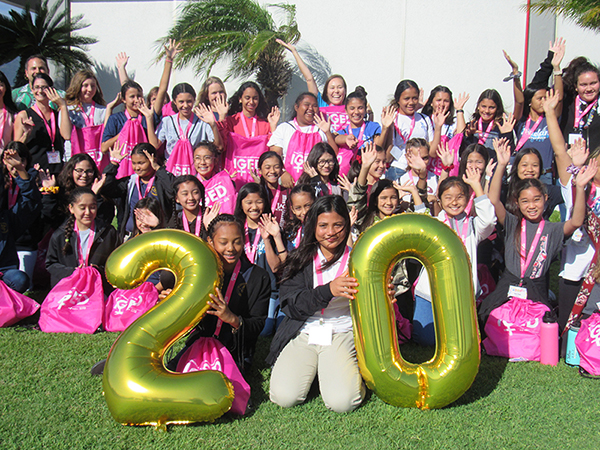
Mar 11, 2020 | Innovation, Sustainability
In February, Maui intermediate schoolgirls attended Introduce a Girl to Engineering Day (IGED). Sponsored by Maui Economic Development Board’s (MEDB) STEMworks™ (science, technology, engineering, mathematics) program, IGED is part of National Engineers Week, and marks MEDB’s 20th IGED anniversary. Over 70 attendees participated in activities designed to interest middle school girls in engineering career paths, which traditionally have been male-dominated.

“Our STEMworks™ project-based model is recognized nationally as an innovative, relevant, and successful approach to education,” said Lalaine Pasion, STEMworks™ Project Manager. “The mission of STEMworks™ is to provide students and teachers with resources and tools that empower them to improve their community and the world.” This year, industry partners Hawaiian Electric and the National Solar Observatory (NSO), along with MEDB’s STEMworks™ team and teachers, connected the students to real-world learning opportunities.
Sharon Suzuki, Hawaiian Electric President of Maui County and Hawai’i Island Utilities, said, “We’re honored to be a long-standing supporter of this event that has introduced young females on Maui to the field of engineering for the past 20 years. As a partner since its inception, our Maui staff always looks forward to engaging and fostering a new generation of STEM leaders and professionals in our communities.”
Jennifer Suzuki, Maui Waena Intermediate School STEM teacher, reflected, “Opportunities with IGED provide exposure to STEM fields and often plant the seed of interest, which lead to future careers. Some of my former IGED girls are now engineers, doctors, and computer scientists. Without this early exposure, these careers may not have even been on their radars.” Agreeing, Mark Cunningham, STEMworks Iao Intermediate Teacher, said, “These types of extraordinary experiences are what mold future ideas. My students returned to class with a passion for the world, how it works, and how to solve its problems.”
Lahaina Intermediate 7th grader Naiya Eide added, “IGED inspired me to set goals to be the best I can be, and never give up. Hawaiian Electric engineers gave tours of the facility and provided hands-on science experiments. We asked the NSO engineers questions about the Sun and space-related events, and learned first-hand how hard work and setting goals pay off.”
The STEMworks™ in-school and afterschool program engages, inspires, and motivates K-12 students throughout the islands.
Lalaine Pasion, STEMworks™ Project Manager
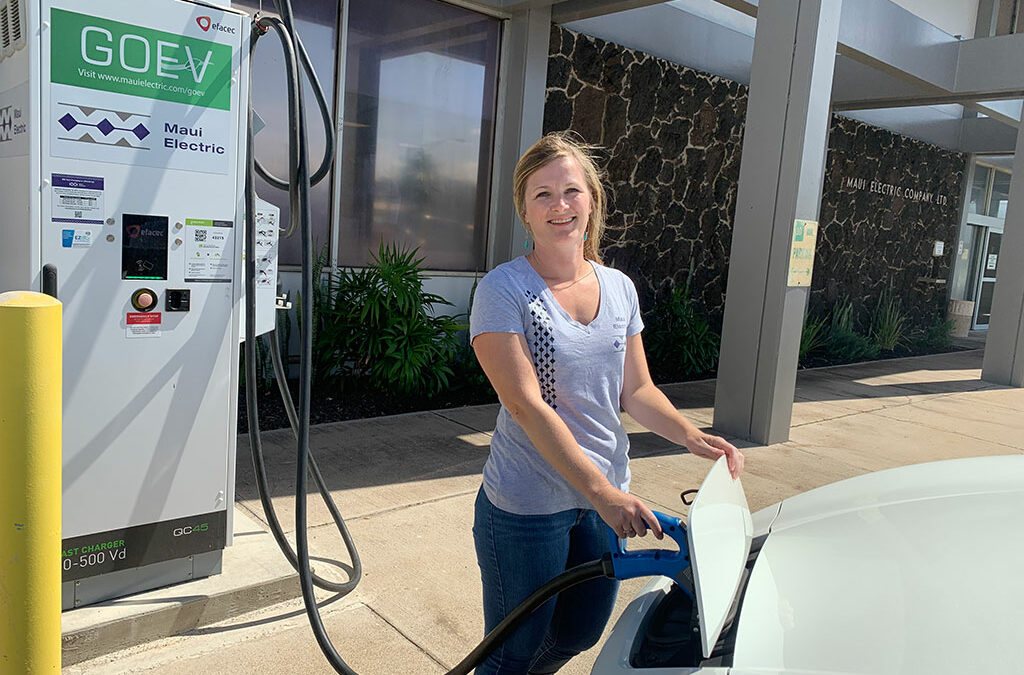
Sep 25, 2019 | Environment, Sustainability
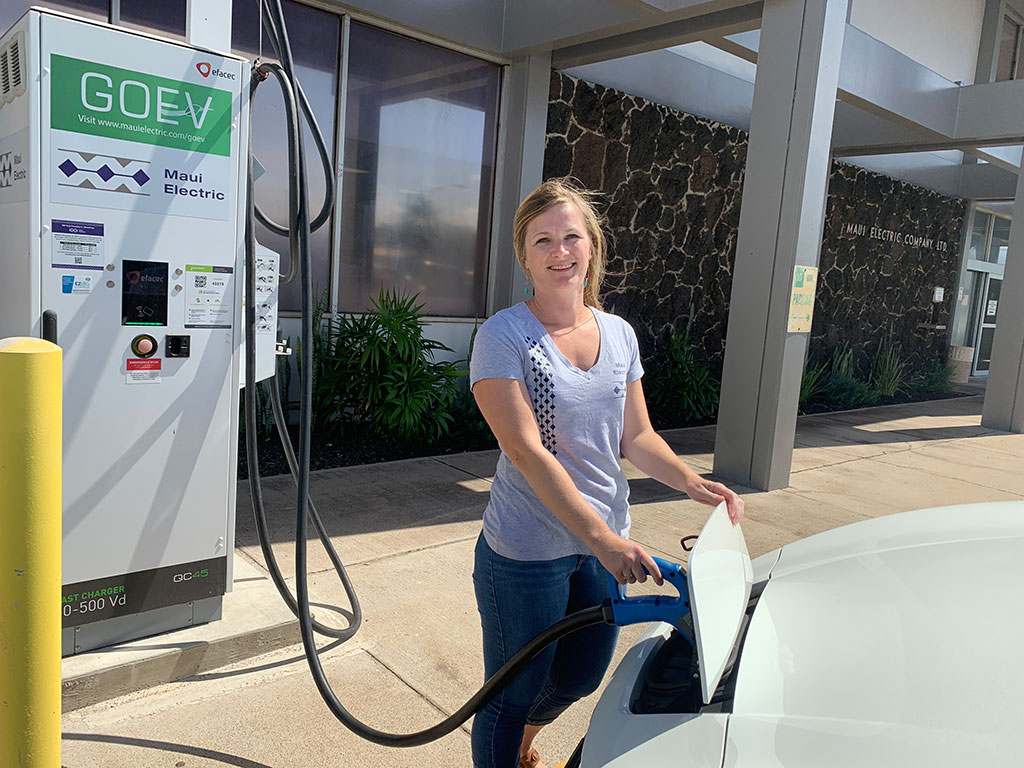
Maui Electric Company has informed the Public Utilities Commission of its intent to move forward with the ownership and operation of four electric vehicle (EV) fast-charging sites in the existing EVohana network on Maui. The EVohana sites, temporarily owned and operated by Maui Economic Development Board (MEDB), were initially established as part of the JUMPSmartMaui demonstration project, a cooperative venture between Japan, the State of Hawaii, County of Maui, MEDB, Hitachi and Maui Electric. Operating from 2011 to 2017, it demonstrated smart-grid technologies that could enable the efficient use of renewable energy on an island grid.
“MEDB, as a nonprofit organization, took on temporary ownership and operation of the EV charging infrastructure in an effort to keep the network in place,” said Leslie Wilkins, MEDB President & CEO. “We appreciate Maui Electric for stepping up to ensure our island continues to have access to reliable public fast-charging options for EV drivers. Without Maui Electric taking on some of these sites, the entire EVohana charging network would have been retired earlier this year.”
At the conclusion of the JUMPSmartMaui project, ownership of the charging assets were transferred to MEDB until a permanent owner and operator of the sites could be confirmed. MEDB partnered with Hitachi to create a new, temporary program called EVohana, which ended March 31, 2019.
Covering the Central, South, West and Upcountry Maui areas, the sites, allowing more EV types to charge, are located at the Queen Ka’ahumanu Center, Pi’ilani Village Shopping Center, Lahaina Aquatic Center, and Pukalani Terrace. EV drivers will be able to “pay-as-you-go” with multiple ways to initiate charging sessions, from smartphone apps to credit cards. Rates will be as low as 0.28 cents per kilowatt-hour between 9am and 5pm.
“As we work to add more clean energy to power our islands, EVs can play an important role in further reducing our dependency on fossil fuel and protecting our environment,” said Sharon Suzuki, president of Maui Electric. “We are pleased to add our support by taking on the four sites with lower charging rates that encourage plugging in when we have a lot of solar energy on the electrical system.”
This October, Maui Electric, along with Hawaiian Electric and Hawaii Electric Light, will be proposing a comprehensive electrification-of-transportation workplan that further details the companies’ expanded role in the deployment of EV charging infrastructure for Maui County, Oahu and Hawaii Island.
Sharon Suzuki, Maui Electric, President
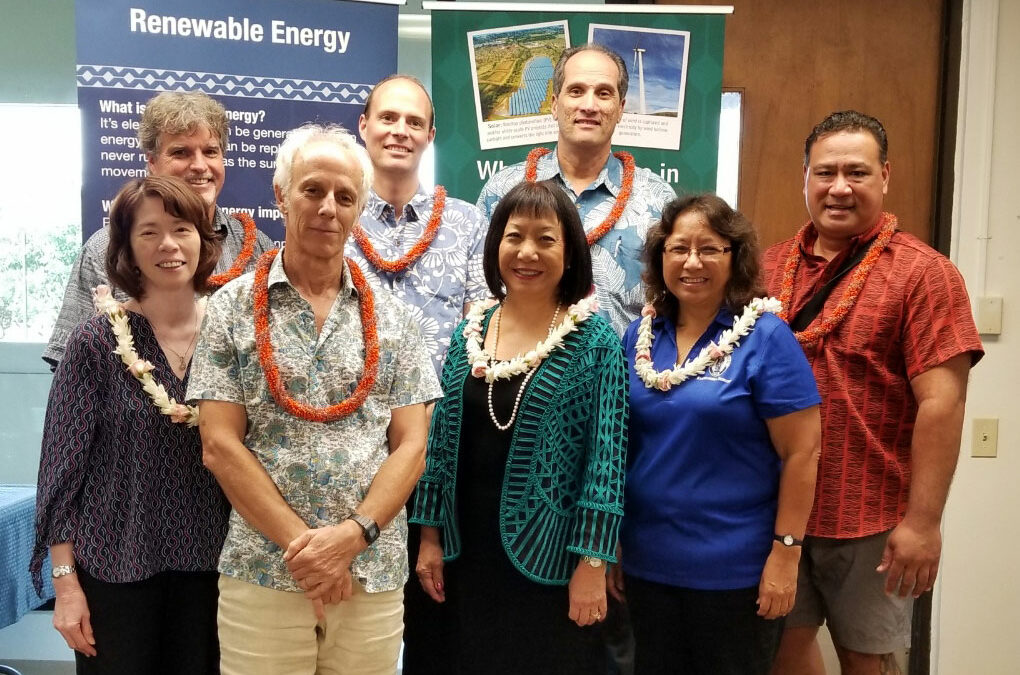
Aug 7, 2019 | Environment, Events, Sustainability
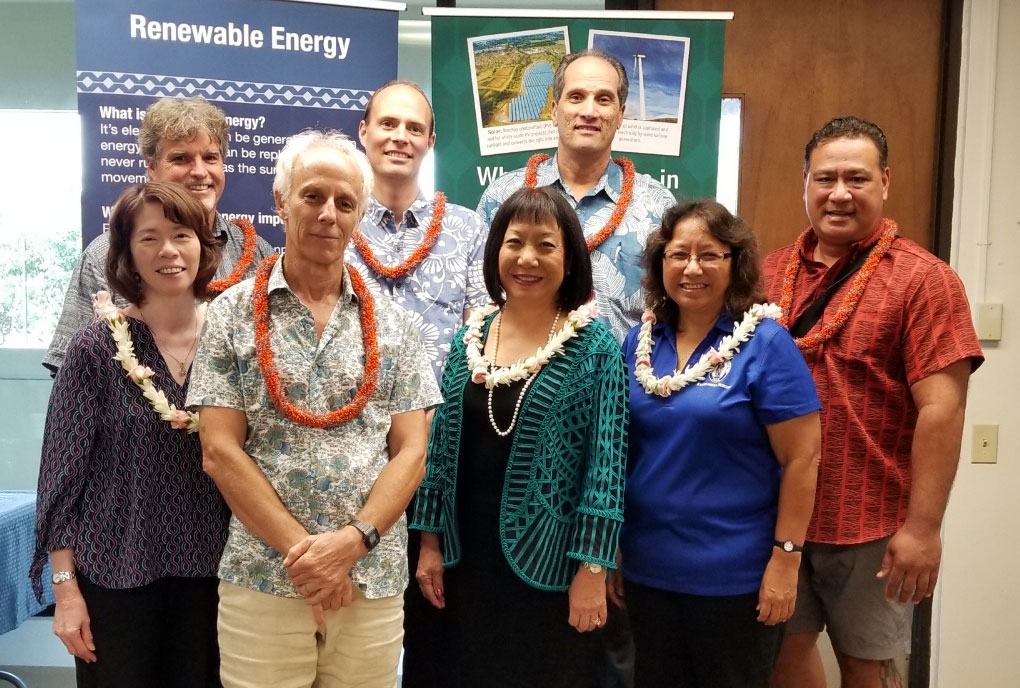
The first community forum on 100% Renewable Energy: What Will Maui Look Like? took place recently at the Cameron Center in Kahului. Coming on the heels of the 2019 Hawaii Energy Conference and Exhibition, the standing-room only event, presented by Maui Electric Company (MECO) in partnership with Maui Tomorrow and the Sierra Club, outlined the challenges and some solutions for Maui’s renewable future.
“We’ll have different ideas on how to achieve our clean energy future,” said Sharon Suzuki, president of Maui County and Hawai’i Island Utilities. “Achieving the goal of 100 percent renewables by 2045 requires all of us working together. As Maui Electric starts to put more bids out to procure more renewable energy projects for the island, it will require informed energy developers, available land resources, and ongoing dialogue with our communities, regulators and government leaders.”
Moderator Mahina Martin, Manager, Government and Community Relations at Maui Electric, led the forum featuring the following panelists: Kumu Kapono’ai Molitau, Kumu Hula; Albert Perez, Executive Director, Maui Tomorrow Foundation; Chris Reynolds, System Operations Director, Maui Electric Company; Alex De Roode, Energy Commissioner, County of Maui; Dana Sato, Asset Management Director, Kamehameha Schools; and Rob Weltman, Chairperson, Sierra Club Maui Group.
Weltman said, “Maui can and must be powered by carbon-neutral, local, environmentally friendly technologies, including solar and wind. Contributing to sea level rise and extreme weather events through continued dependence on fossil fuels is not an option for our vulnerable island community.”
Perez described a community solar program. “The project provides solar energy to residential and commercial customers without access to privately-owned rooftop solar, including many renters and apartment dwellers.”
De Roode, on electrification of transportation, said, “Ground transportation today accounts for one quarter of Hawaii’s fossil fuels consumption and over one quarter of greenhouse gas emissions. MECO is focused on initiatives to advance the switch from gasoline to electric vehicles, helping to reduce Hawaii’s dependence on imported oil.”
Molitau and Sato agreed, “It is our malama ‘aina to care for the land− physically and spiritually. Together, we must understand the need to preserve and protect our natural resources for our future generations.”
As of 2019, private rooftop and utility-scale solar, biofuel and wind resources boosted the amount of renewable energy used to generate electricity in Maui County to 38 percent. We’ve exceeded the state’s goal of 30 percent renewables by 2020, lowered greenhouse gas emissions from our generators, and reduced the amount of oil we used.
Sharon Suzuki, President of Maui County and Hawai’i Island Utilities
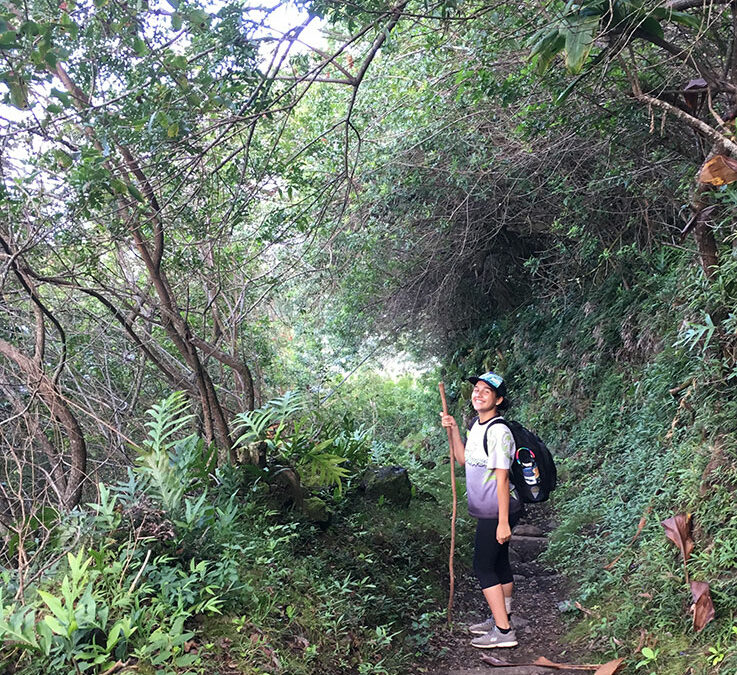
Jun 12, 2019 | Environment, Sustainability
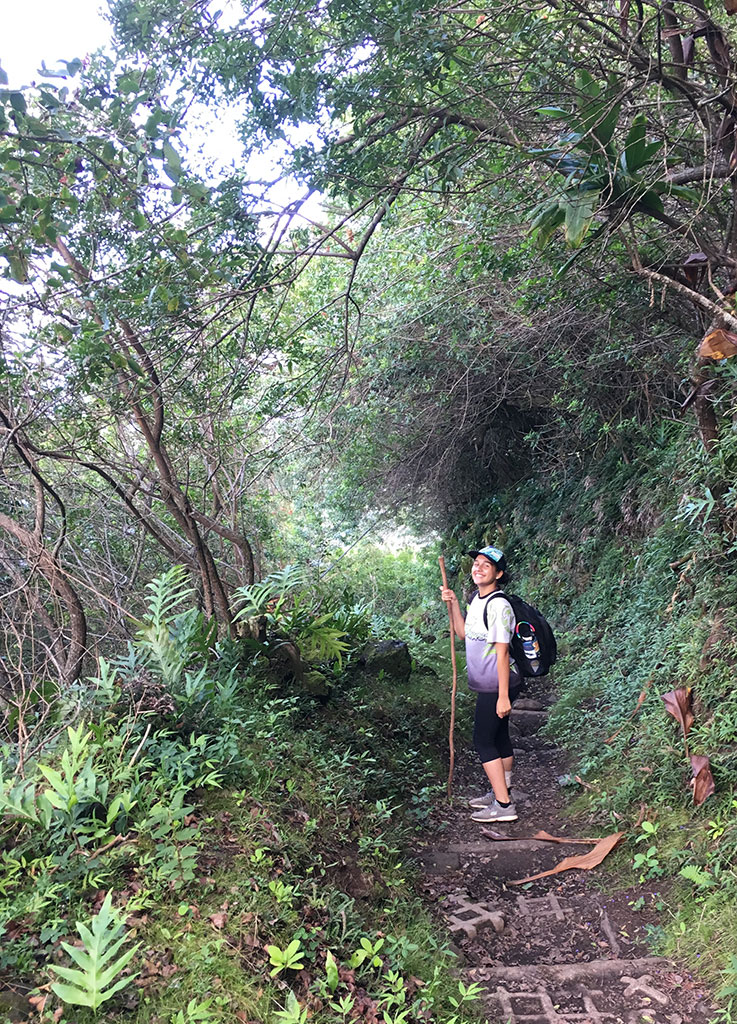
Molokai High School senior, Cameryn Rae Kahalewai won numerous awards, including first place overall in the senior division at the 60th Maui County Regional Science & Engineering Fair held at the Maui Beach Hotel. Kahalewai’s project, “The Effect of Soil Type, Salt, and Feral Animal Fencing on the Plant Distribution and Abundance on Kalaupapa Peninsula, Molokai”, also won her an invitation to represent Maui District in the Intel International Science & Engineering Fair in Phoenix, Arizona in May.
“My project examined the effect of feral animals, soil type, and salt on the distribution of coastal vegetation,” Kahalewai explained. “Using quadrat plant surveys and soil conductivity measurements in two 100-hectare (250-acre) areas with and without deer, I found that soil salt levels were similar across all soil types except for sand. Lower readings for sand could be due to the prevailing wind patterns or soil drainage. Without deer, mineral and organic soil had larger percentages of plant cover, while the sand and mixed soil types had higher percentages of native species present. Comparing the impacts of deer on either sides of the fence, both native and non-native plant cover decreased when deer were present. Four key plant species were selected in the grass, forb, or shrub life form categories. All experienced a decrease in average percent plant cover when deer were present. Based on these results, we can conclude that deer are negatively impacting the coastal salt spray vegetation and species richness regardless of soil type. Fencing appears to improve plant cover, especially for native species growing abundantly in the sand.”
Kahalewai found that both invasive plants and free-roaming ungulates (hoofed animals) are causing detrimental impacts to native plant species. “I wanted to show that if ungulate problems are addressed in time, the remaining native coastal vegetation in damaged areas has a better chance to survive,” she said.
Biology teacher Jeannine Rossa said, “I saw Cameryn’s enthusiasm and understanding of the material develop throughout the semester. This is wonderful field-based science. Kahalewai hopes to major in both environmental science and business marketing in the Fall.”
I hope my research can inform both the Kalaupapa land management and the entire community of Hawaii about the effects of coastal salt spray, soil type and feral animals on coastal vegetation and offer plausible solutions.
Cameryn Rae Kahalewai, Molokai High School senior
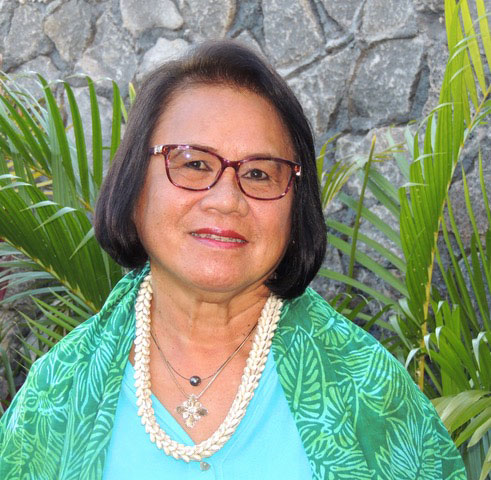
May 15, 2019 | Community, Sustainability

An affordable housing survey focusing on the West Maui community has just begun circulation to help define the extent of the need for affordable workforce housing upon which the West Maui economy depends. The initiative for the survey came from the community itself, led by long-time resident Lori Sablas, who has spent most of her career in the visitor industry. “My Dad worked for Pioneer Mill and purchased our first home in 1969 for $19,380. Our monthly payment was $104 per month; how times have changed!”
Lori knows the value of home ownership and her motivation is to help the West Maui workforce buy a home near their workplace, just as her Dad did. As the former Director of Ka’anapali Beach Hotel’s Project Po’okela program, she developed educational opportunities for staff to learn about Hawaiian culture. She was also instrumental in bringing West Side hoteliers together to support the commuter bus system and subsidizing fares to reduce traffic congestion and make commuting as easy as possible.
Across Maui County, as elsewhere in the state and nationally, affordable housing is a critical issue as supply fails to keep up with demand. Recent studies have shown that it is an issue that represents a major constraint on economic development, and as the Maui County General Plan states, “When adequate or appropriate housing is unattainable to a large portion of the population, it negatively impacts the entire community and decreases overall quality of life.”
Originally shaped by an informal working group of West Side HR directors and employers led by Lori Sablas and further developed by MEDB, the West Maui Workforce Housing Survey is a first step to defining the need through data provided by residents. The exercise will better inform our local community, our policymakers, and real estate development companies about the demand for affordable housing. The survey is entirely anonymous and can be accessed online at www.medb.org/wmsurvey.
In seeking resident input, Lori Sablas notes, “I felt strongly that we need to ask our workforce about this issue and address it from the bottom-up, as opposed to top-down. It’s an initiative than we can deploy in other areas – such as South Maui, if we find the information we collect is useful.”
The West Side Affordable Housing Survey started from a grass-roots level. My sincere hope is that our combined efforts will result in more of our workforce becoming homeowners, just like my Dad did.
Lori Sablas, cultural specialist and community advocate

 On Thursday August 27 at 9:00 pm, PBS Hawai’i will present the world premiere of Hawaiiana, a new documentary about the late Winona Kapuailohiamanonokalani Desha Beamer, or Aunty Nona as she was fondly called. Credited with coining the term Hawaiiana as early as 1949, Aunty Nona used it to describe the absolute best of all things Hawaiian: the people, their knowledge, culture, wisdom, and aloha. Keola Beamer, Aunty Nona’s oldest son, assisted by his wife Moanalani and veteran Maui-based filmmaker Tom Vendetti, made the documentary about the well-known and much loved Hawaiian heroine who is renowned for her integrity, scholarship, and love.
On Thursday August 27 at 9:00 pm, PBS Hawai’i will present the world premiere of Hawaiiana, a new documentary about the late Winona Kapuailohiamanonokalani Desha Beamer, or Aunty Nona as she was fondly called. Credited with coining the term Hawaiiana as early as 1949, Aunty Nona used it to describe the absolute best of all things Hawaiian: the people, their knowledge, culture, wisdom, and aloha. Keola Beamer, Aunty Nona’s oldest son, assisted by his wife Moanalani and veteran Maui-based filmmaker Tom Vendetti, made the documentary about the well-known and much loved Hawaiian heroine who is renowned for her integrity, scholarship, and love.
 Rotary International District 5000 announced the award of $31,000 in grants to Hawaii Rotary clubs to support COVID-19 relief projects. The Hawaii District 5000 funds come from dues and donations from club members across the islands. Funds that were budgeted this year for conferences, training and travel have been re-allocated to these COVID-19 grants. The clubs are using these grants to work with Hawaii nonprofit community partners to provide COVID-19 relief.
Rotary International District 5000 announced the award of $31,000 in grants to Hawaii Rotary clubs to support COVID-19 relief projects. The Hawaii District 5000 funds come from dues and donations from club members across the islands. Funds that were budgeted this year for conferences, training and travel have been re-allocated to these COVID-19 grants. The clubs are using these grants to work with Hawaii nonprofit community partners to provide COVID-19 relief.










